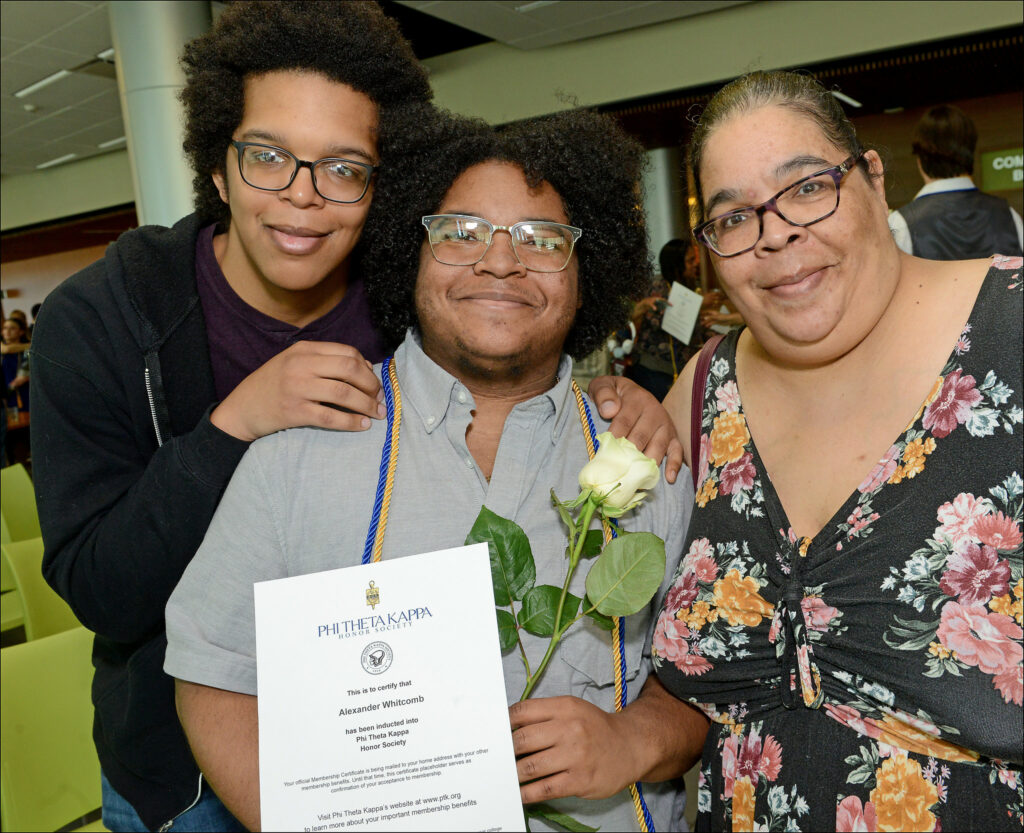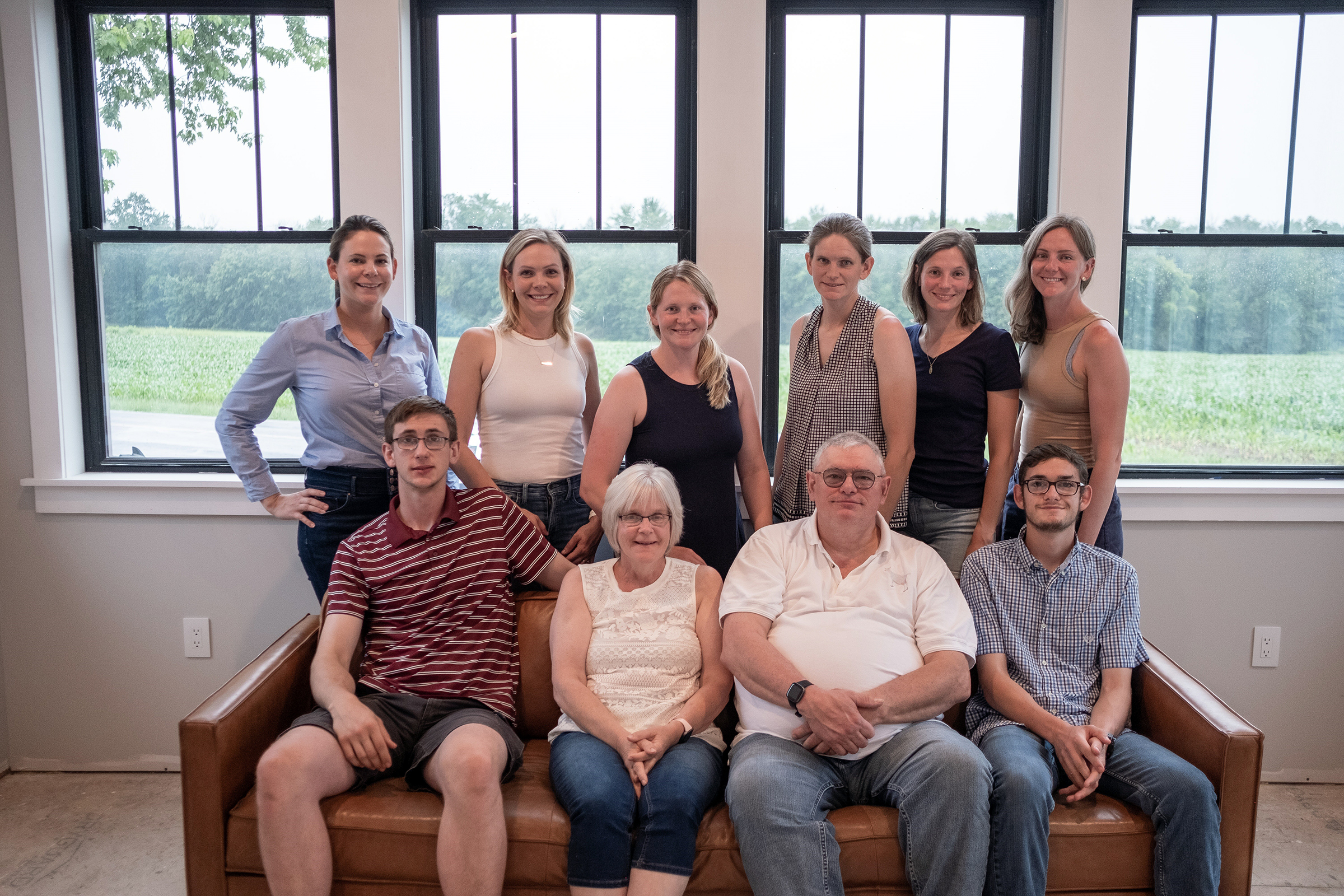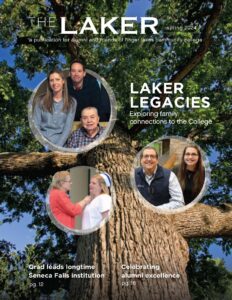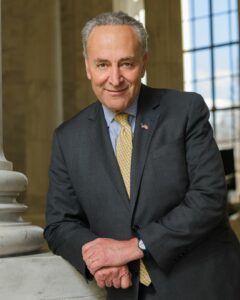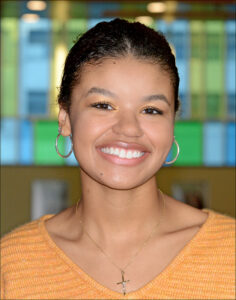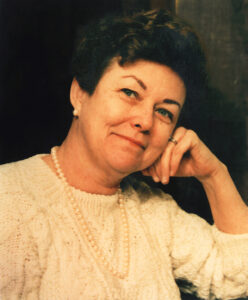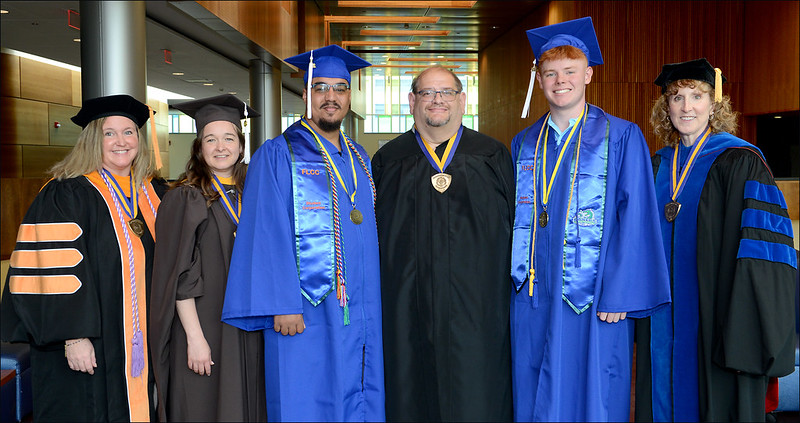
Four Finger Lakes Community College employees and two students were honored with the State University of New York Chancellor’s Award for Excellence at the commencement ceremony in May. They are as follows:
Drew Bateman of Hilton, a 2024 graduate, the 2023-24 Student Corporation president, and recipient of the SUNY Chancellor’s Award for Student Excellence
Terrance Dominguez-Hover of Bristol, a 2024 graduate, the 2023-24 Student Veterans Organization president, and recipient of the SUNY Chancellor’s Award for Student Excellence
Beth Johnson, Ph.D. of Canandaigua, professor of theater, recipient of the SUNY Chancellor’s Award for Excellence in Faculty Service
Kimberlie Noyes, D.N.P., of Pittsford, a 2000 FLCC graduate and associate professor of nursing, recipient of the SUNY Chancellor’s Award for Excellence in Teaching
John Onorato of Geneva, building maintenance mechanic, recipient of the SUNY Chancellor’s Award for Excellence in Classified Service
Maura Sullivan of Naples, associate professor of environmental conservation and horticulture, recipient of the SUNY Chancellor’s Award for Excellence in Teaching
Below are excerpts of remarks shared at a luncheon prior to the commencement ceremony.
Continue reading “Six honored with SUNY Chancellor’s Awards”


